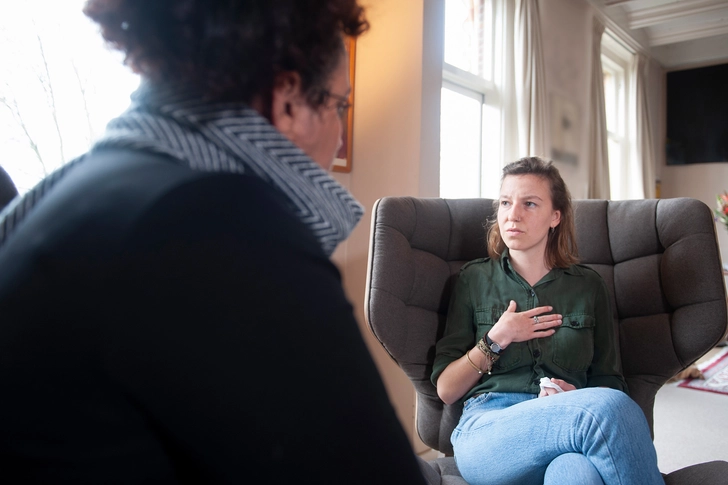- Overview
- Symptoms
- Causes & Risks
- Types
- Tests & Diagnosis
- Staging
- Treatment
- Living With
- Complications, Metastasis & Recurrence
- View Full Guide
Caring For Yourself With Ovarian Cancer


10 Tips on Caring for Yourself With Ovarian Cancer
Ovarian cancer is caused by uncontrollable cell growth in your ovaries. It can spread to other organs as well.
Treatment can involve draining and may also include chemotherapy and surgery to remove your ovaries. The entire process can be exhausting or even completely overwhelming at times — but you need to take care of yourself so you can survive and recover.
Read on to learn 10 ways to take care of yourself with ovarian cancer.

1. Do Things That You Enjoy
You need to make time for activities that bring you joy. Having something to look forward to is a necessary part of maintaining a positive outlook on life.
You can either keep up with old hobbies or try something new. Many people enjoy expressing themselves through art after their cancer diagnosis. Give painting, dancing, or writing a try.

2. Take Time for Your Emotional Health
You need to take the time to process all of the emotions that come with this condition. Try stress-relief techniques like meditation and journaling.

3. Stay Active
Even if you’re not feeling great, physical activity is good for both your mental and physical health.
Stick to simple activities like stretching and calm walks.

4. Keep Eating
You might not always feel like eating when you have ovarian cancer, but you need calories to keep your strength up.
Stick to foods that are high in protein to get the most energy out of a small meal. You can also try a liquid diet of shakes and broths since you may find them easier to consume.

5. Talk to a Therapist
A lot of unique issues come with ovarian cancer. You might be worried about your dating life, your hormonal changes, or any number of concerns.
A therapist is a great person to talk to if you need to vent your frustrations and receive advice on what you can do to cope with your condition.

6. Find a Support Group
Sometimes, the best thing for your mental health is to talk to other people who are battling the same disease. Look for ovarian cancer support groups online or at community health centers.

7. Ask Your Friends and Family for Support
This particular cancer frequently occurs in young women — many of whom have only recently moved away from home. It can be difficult to ask for help when you’re getting your first taste of independence, but your loved ones are an invaluable resource in these difficult times.

8. Don’t Hesitate To Ask for Personal Space
On the other hand, your family could also become overly involved with your life and treatment after you get your cancer diagnosis.
This is your cancer, though, and you need to handle it in the way that’s best for your physical and mental health. Always ask for space when you need it — your family should understand.

9. Keep Living
Life goes on despite your cancer diagnosis. Bills will need to be paid and important milestones will come and go.
Don’t let your disease consume the rest of your life. You won’t be able to do everything that you could before your diagnosis, but people with cancer still need to engage with other aspects of their lives.

10. Stick to Your Survivorship Care Plan
Even once you’ve been declared cancer-free, your journey isn’t over. Your doctor should provide you with a survivorship care plan — feel free to ask for one if they haven’t.
This will provide details on follow-up tests, prepare you for the long-term side effects of your treatment, and provide you with advice about proper diet and exercise.
The best way to keep your cancer from returning is to follow the recommendations in this plan.
PHOTO CREDITS:
1. Science Photo Library / Getty Images
2. Science Photo Library / Getty Images
3. The Image Bank / Getty Images
4. DigitalVision / Getty Images
5. Moment / Getty Images
6. E+ / Getty Images
7. DigitalVision / Getty Images
8. E+ / Getty Images
9. Moment / Getty Images
10. iStock / Getty Images
11. E+ / Getty Images
12. Westend61 / Getty Images
SOURCES:
MyHealth.Alberta.ca: “Ovarian Cancer Care Instructions.”
Ovarian Cancer Institute: “Self Care (for the real life cancer patient).”
Ovarian Cancer Research Alliance: “Taking Care of Yourself.”
American Cancer Society: “Living As An Ovarian Cancer Survivor.”